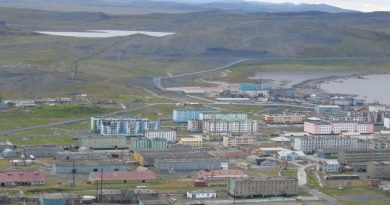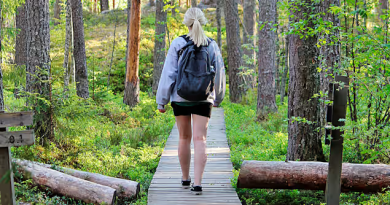Indigenous Canadian veteran honours late father, also a veteran, by having his medals blessed and smudged
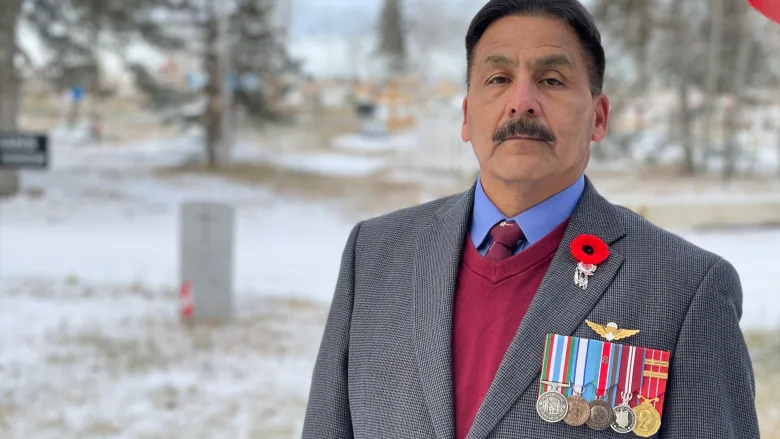
Floyd Powder is hoping to walk alongside other Indigenous veterans in Ottawa on Nov. 11
Floyd Powder, a Canadian Armed Forces veteran, is taking his late father’s medals to Ottawa to have them blessed and smudged by Indigenous veterans.
The late Tom Eagle, a Yellowknife-based Indigenous veterans advocate, found the elder Powder’s medals but wasn’t able to give them to him before they both died.
Powder hopes that he, and his son, will be invited to march with the medals alongside other Indigenous veterans.
“If we do have the opportunity to march in the parade, I’ll have those two medals in my pocket above my heart and under my own medals,” Powder said.
“That’ll be a way of honouring my father.”
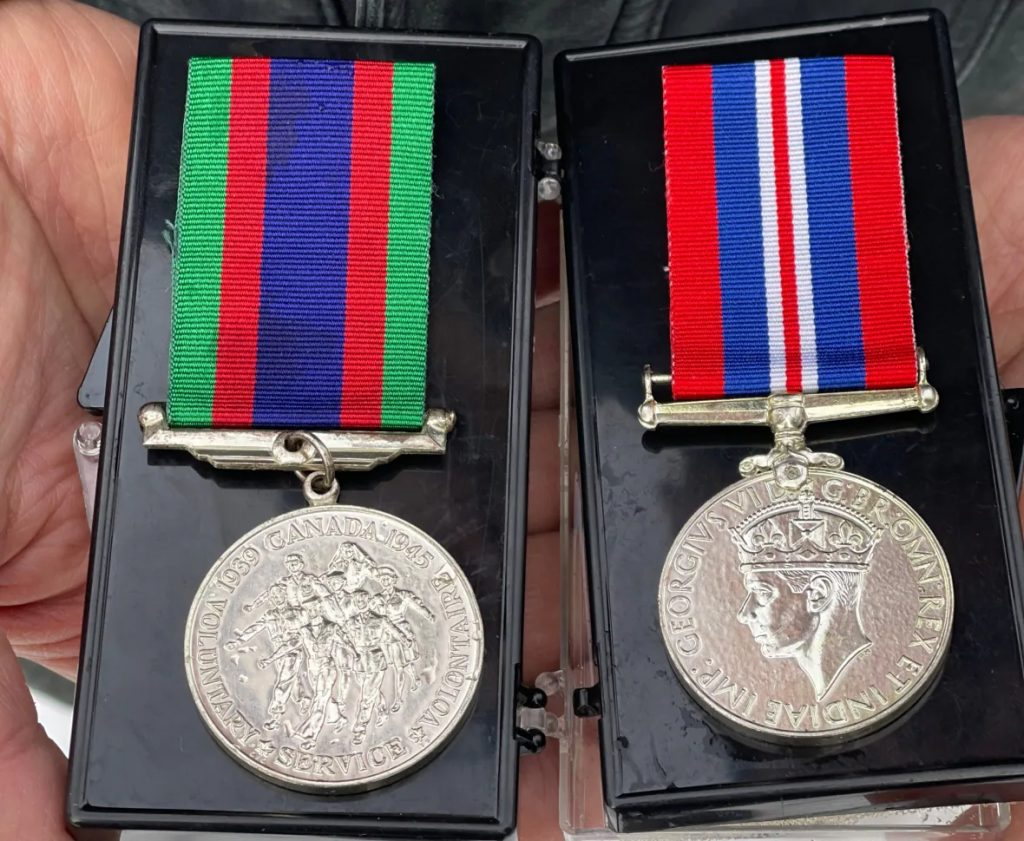
About a decade ago, Powder and his oldest daughter, who was in cadets in Ontario, went to the ceremony in Ottawa and were invited to march in the Remembrance Day Parade.
“That was one of the most personally satisfying experiences. Again, the sound of you know, the applause and the guns going off, echoing through the streets … made me feel really proud,” he said.
“I will hopefully have that experience again this year.”
Powder also plans to put the medals on display in his home once he returns.
But it’s not the only work Powder has been doing for Indigenous veterans.
Identifying grave sites of Indigenous veterans
Since May 2020, Powder has been identifying grave sites after an Indigenous veterans co-ordinator with the Last Post Fund — a non-profit organization that works to ensure no veteran is denied a dignified burial and a military headstone for lack of money — asked him to check the Lakeview cemetery in Yellowknife for the burial plots of two Indigenous veterans.
He looked in the veterans field of honour section, and noticed that there were eight spots that didn’t have headstones.
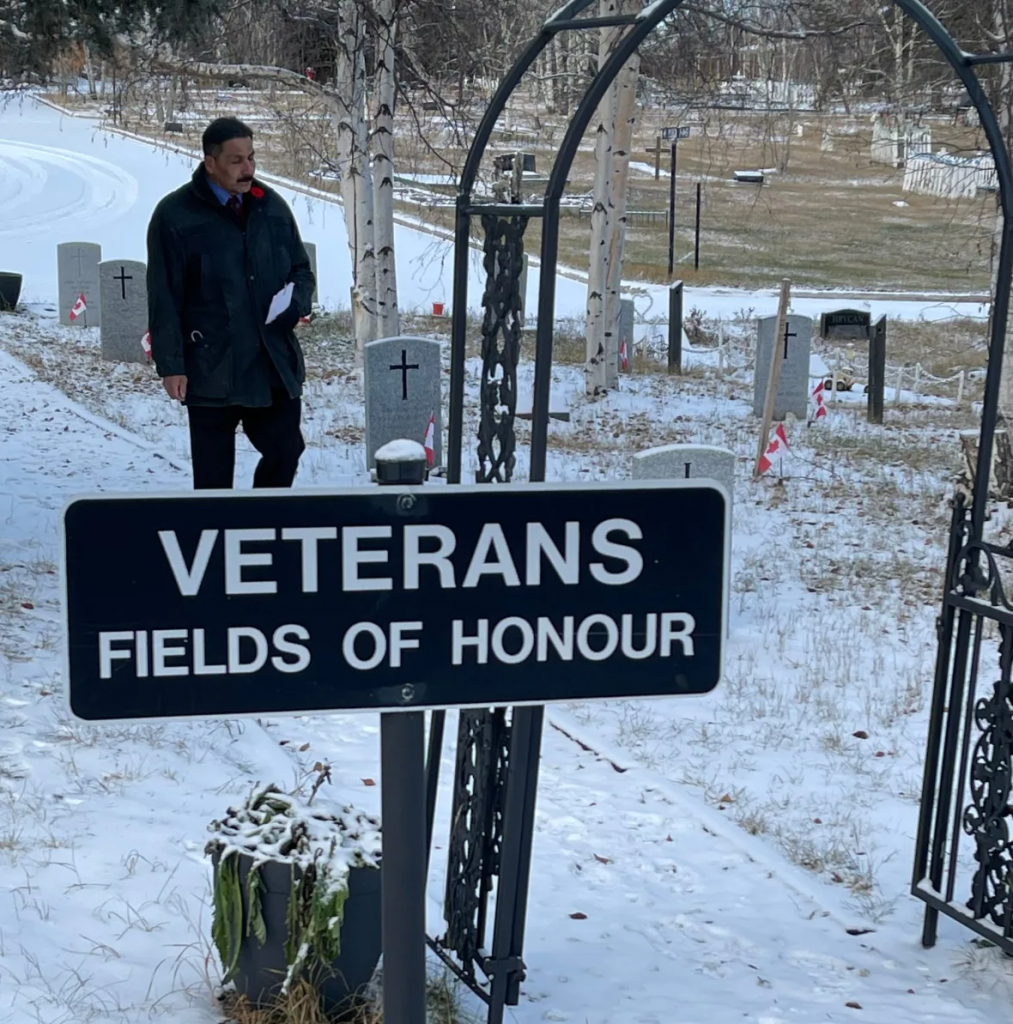
He was able to confirm five and, working with their families, had headstones installed at each of them.
He said he saw three others in a different section of the cemetery that he was able to identify, and have headstones installed for.
“So those people have been properly marked and identified,” he said.
He says this not only honours the veterans’s services, but also, in a small way, helps to right the wrongs Indigenous veterans suffered when they were denied support by the Canadian government after returning from war.
Involvement of families ‘very important’
He said the involvement of families “in everything we’re doing is very, very important.”
He added many of them appreciate that their families’ veterans are being recognized.
If an Indigenous member wants to have an Indigenous symbol added onto their headstone, they can request that, he said.
“We make sure the family wishes to have that, otherwise it’s the Latin Cross that you see on most of the headstones,” said Powder.
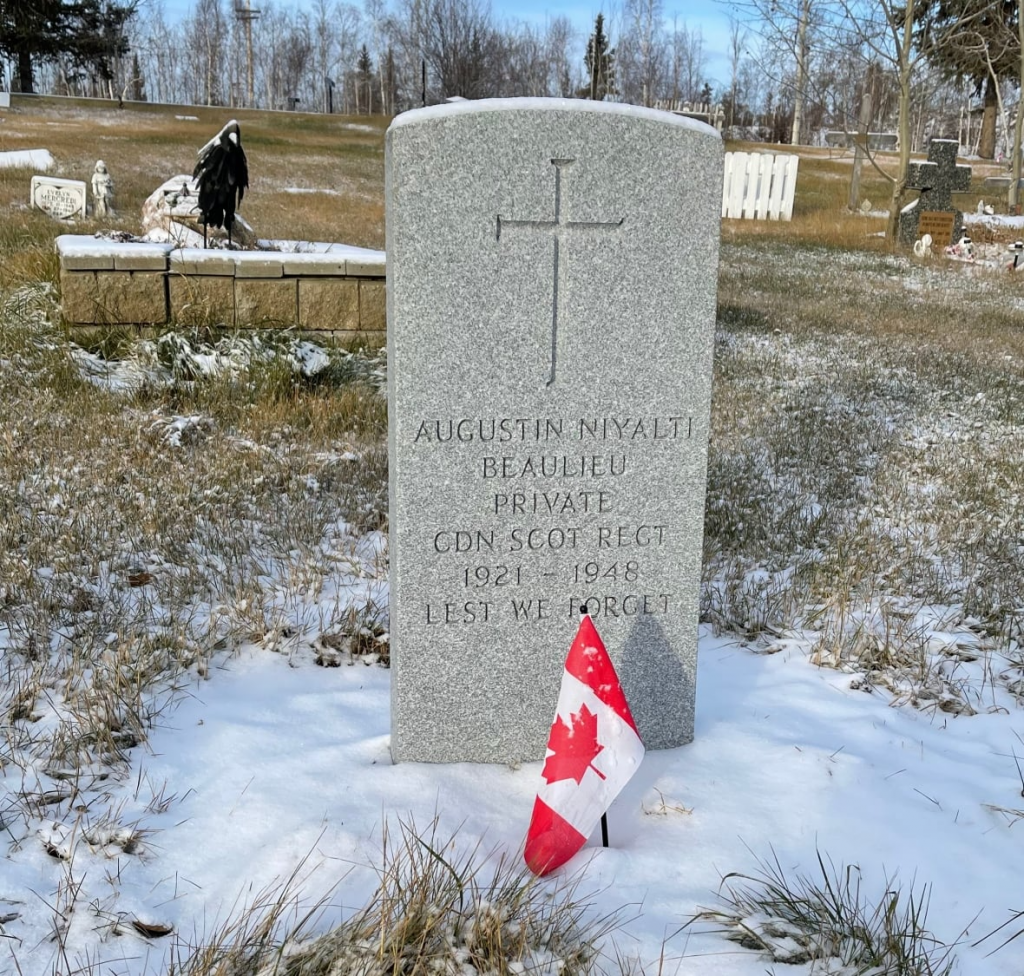
He said in one case, a headstone installed in Fort McPherson was bestowed with the Gwich’in Tribal Council symbol at the request of the family.
He said it showed respect for the individual and the organization.
Reminding people ‘what actually happened’
Powder is planning to have a ceremony for all the veterans’ headstones that they had installed.
However, with public health restrictions due to the COVID-19 pandemic, that’s been postponed until at least next June.
He’s hoping it will then evolve into a bigger, annual event.
“We need to remind Canadians that in this great country, Indigenous servicemen were treated unfairly, there was a double standard which, if it was their relative, their father, their mother, their grandmother and their grandfather, they wouldn’t accept that in this great country, that this happened. It’s not acceptable.
“But so I’m here to remind people … what actually happened.”
Related stories from around the North:
United States: Veterans from Indigenous Alaskan village have war stories archived online, Alaska Public Media

